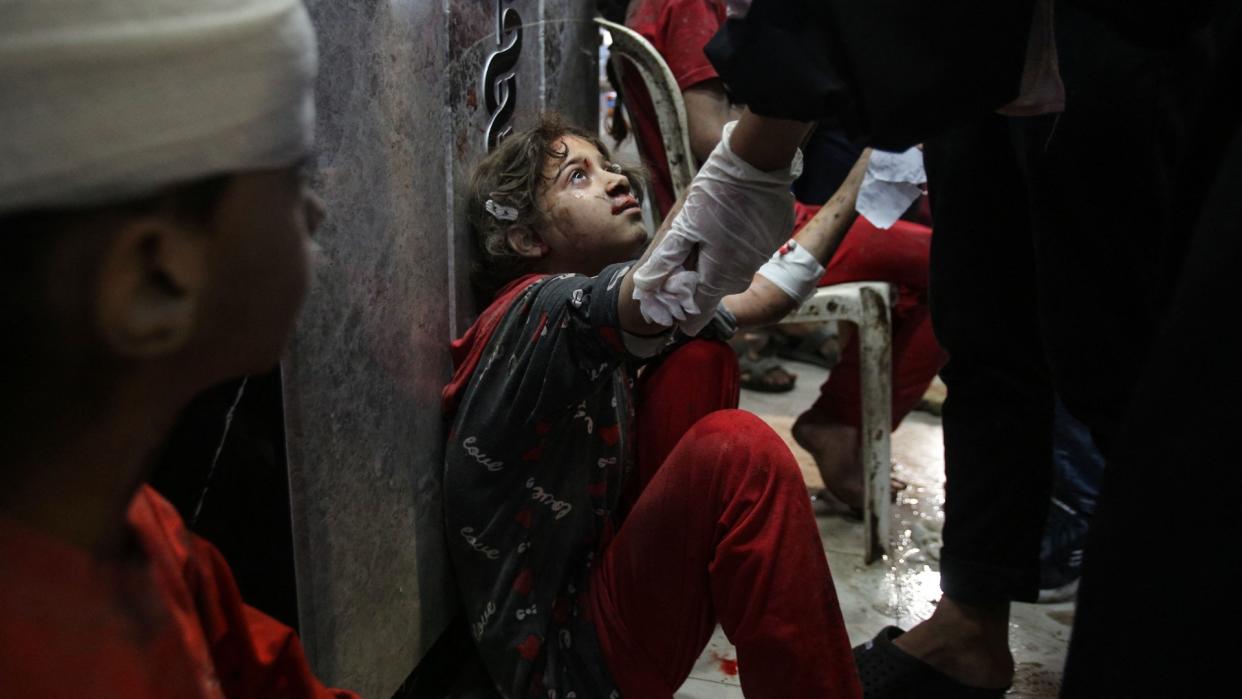Gaza's Al-Shifa hospital battle: a 'diplomatic failure' for Israel

Gaza's biggest hospital has become the epicentre of fighting between Israeli forces and Hamas in the battle on the ground and for world opinion.
The World Health Organization (WHO), which lost all communication with the Al-Shifa hospital over the weekend, described the situation as "dire". Staff, patients and thousands of sheltering residents are trapped inside due to heavy fighting, and 37 premature babies are at risk of dying as fuel in the facility is running out. Infants are reportedly being wrapped in foil just to keep them alive.
Three UN agencies have "expressed horror" at the situation in hospitals across the Hamas-controlled territory, France 24 reported, with at least 137 attacks registered on healthcare facilities since the Israeli operation in Gaza began following the 7 October attack by Hamas in Israel.
As images of doctors working by candlelight to save newborn babies are beamed around the world, the risk for Israel, said columnist Avi Issacharoff in the Tel Aviv newspaper Yedioth Ahronoth, is that "a relatively successful military operation" is turning "into one of the biggest political and public diplomacy failures Israel has ever known".
'Safe havens are now scenes of devastation'
Establishing control over Al-Shifa is a "key Israeli objective for military and political reasons", said Jason Burke in The Guardian.
The Israeli Defense Forces (IDF) has claimed that Hamas's main base of operation lies underneath the sprawling medical complex that dominates the centre of Gaza City, reported The Times of Israel. Israel has also accused Hamas of using the thousands of patients and staff in the hospital as "human shields".
Hamas, which denies it has command posts under Al-Shifa, claims the hospital is under a "complete siege" and surrounded on all sides by Israeli forces. Al Jazeera, apparently referencing Munir al-Boursh, an undersecretary at the Hamas-run health ministry, has reported that Israeli snipers continue to fire at anyone near the hospital, "pinning thousands still trapped inside the besieged facility down without electricity, water, or food".
Over the weekend, Israel's President Isaac Herzog denied the IDF is targeting Al-Shifa and told the BBC there is a "lot of spin by Hamas" and that "everything is operating" at the hospital. On Sunday, Israel's military announced evacuation routes from three hospitals in Gaza, including Al-Shifa, so, it said, people could safely move south. It also said it was ready to evacuate babies from the hospital, but Prime Minister Benjamin Netanyahu claimed on NBC News that an offer to provide fuel had been "refused" by Hamas.
WHO chief Tedros Ghebreyesus seemed to support reports that Al-Shifa "is not functioning as a hospital any more", and warned the world "cannot stand silent" while hospitals, which "should be safe havens", are "transformed into scenes of death, devastation, and despair".
'Public opinion rapidly swinging against Israel'
"As crucial as Israel feels the operation is, it is also fraught with diplomatic risk," said Burke.
The White House national security adviser Jake Sullivan told CBS News on Sunday the US had no wish to "see firefights in hospitals where innocent people, patients receiving medical care, are caught in the crossfire" and had "active consultations" with the IDF on the matter.
For the Biden administration, which is facing increasing pressure in the US to soften its position towards a ceasefire, "fears of the hospital becoming the scene of a deadly battle is part of a broader concern by the US over the growing number of civilian casualties in Gaza", said Israeli newspaper Haaretz.
Netanyahu may be digging in for a "long and difficult war", former Israeli PM Ehud Barak told Politico, but Israel has only weeks left to eliminate Hamas and achieve its military objectives, "as public opinion – most significantly in the US – rapidly swings against its attacks on Gaza", said the news site.
Israeli military planners "are well aware that international pressure has halted Israeli offensives or counterattacks in a series of previous wars", said Burke, citing the Six-Day War in 1967, the 1973 Yom Kippur War and the 1982 invasion of Lebanon, when the IDF "rushed to make gains in the final hours before ceasefires were imposed".
"You can see the window is closing. It's clear we are heading towards friction with the Americans about the offensive," said Barak. In reference to Washington's role as the main guarantor of Israel's security, he concluded: "America cannot dictate to Israel what to do. But we cannot ignore them."

